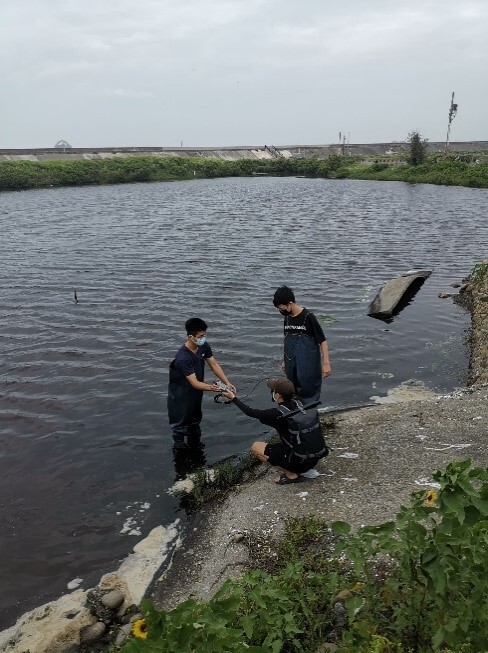SDG 14.2.3 Overfishing (community outreach)
NCUE offered local community residents and students courses related to coastal biological resources, fishing operations, and fisheries conservation, including the “Fangyuan Reengineering USR Seed Programme” and the “2020-2022 In-Depth Cultivation of Fangyuan, Working Hand in Hand with Dacheng: Industrial and Environmental Sustainability Plan of the Two Townships of Changhua County Project” implemented by the Environmental Education Centre. Aquaculture production of Asian hard clams is environmentally friendly as carbon dioxide is absorbed during the process, thus curbing the production of greenhouse gases and carbon emissions. Polyculture based on ecosystem functions can reduce the use of baits, save water, and decrease waste. Risks can be lowered and quality and quantity can be increased with the use of intelligent aquaculture, such as cloud computing, artificial intelligence (AI), and big data analytics. New technologies forming the core of the project help implement innovative teaching methods that combine research courses and teacher-student learning services, combined with in-depth development and operation of aquaculture tourism in fishing villages to create and exploit the new values of urban-rural development for both NCUE and local industries, event photos as shown in Figure 1.
|
|
|
Figure 1. Teachers and students of NCUE inspect water quality in fish farms to ensure that the water supplied to fish farms and drainage water are clean and devoid of harmful pollutants, and fishery operations do not pollute or diminish local water quality (May 05, 2022) |

